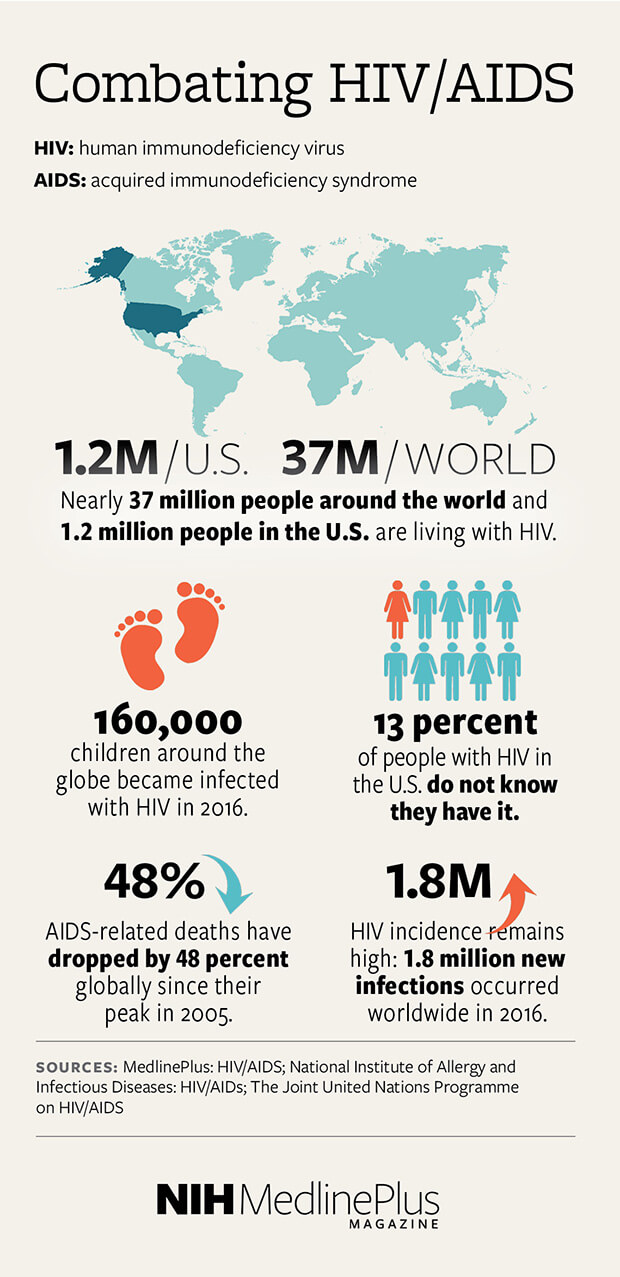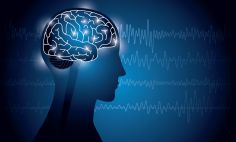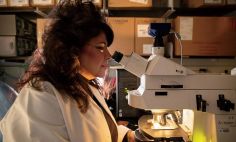Health Topics

Combating HIV/AIDS
Even though the number of AIDS-related deaths worldwide has dropped dramatically—by nearly 50 percent since 2005—1 million people still died from AIDS-related illnesses in 2016.
HIV: human immunodeficiency virus
AIDS: acquired immunodeficiency syndrome
The number of annual new infections of HIV, the virus that causes AIDS, remains high. In the U.S., HIV is spread mainly by having sex or sharing injection drug equipment, such as needles, with someone who has HIV. HIV can also spread from a mother to her newborn during pregnancy, childbirth, or breastfeeding.
NIH and the National Institute of Allergy and Infectious Diseases (NIAID) are committed to better understanding HIV and developing new tools to prevent HIV, including a vaccine, developing more effective treatments for people living with HIV, and hopefully, finding a cure.







